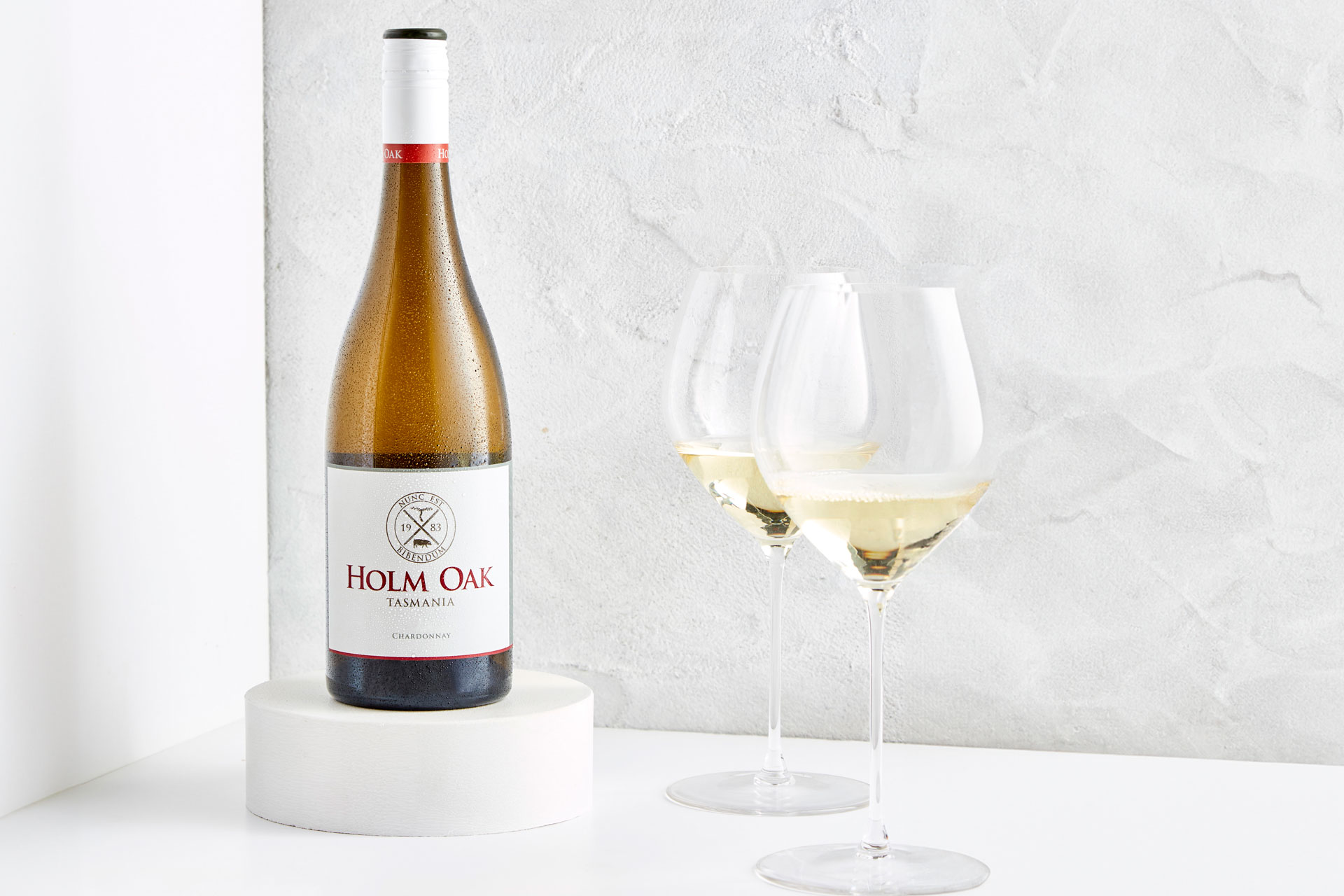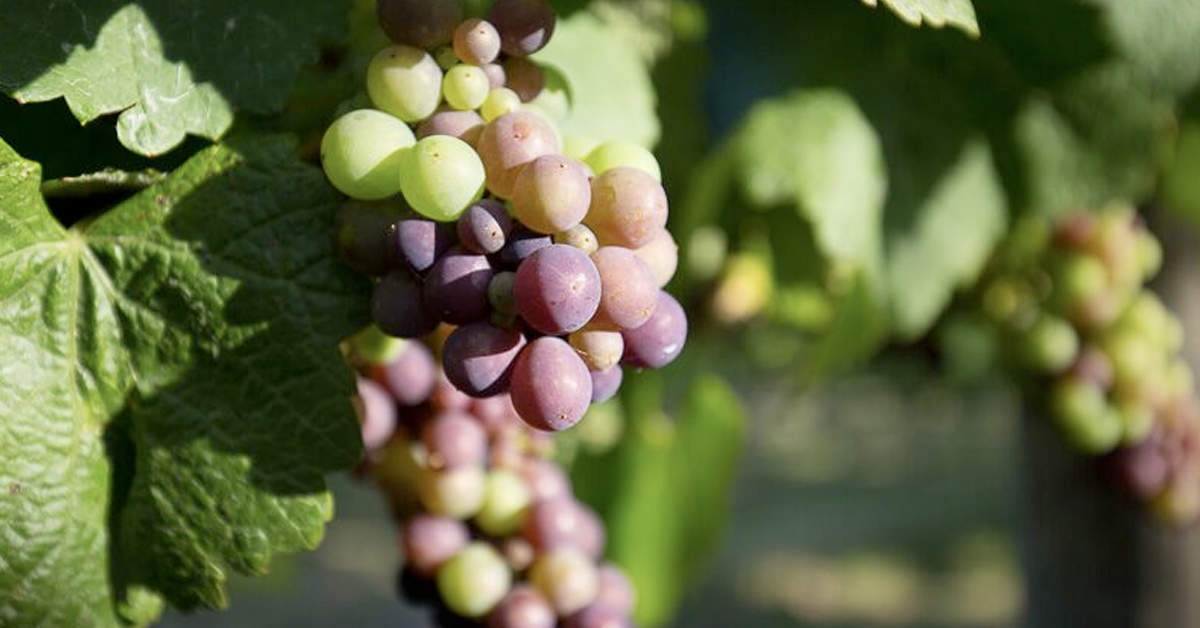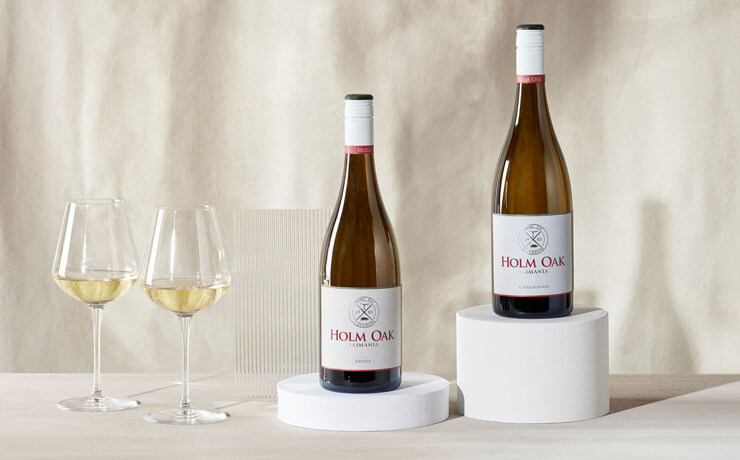The Holm Oak Sustainability Footprint
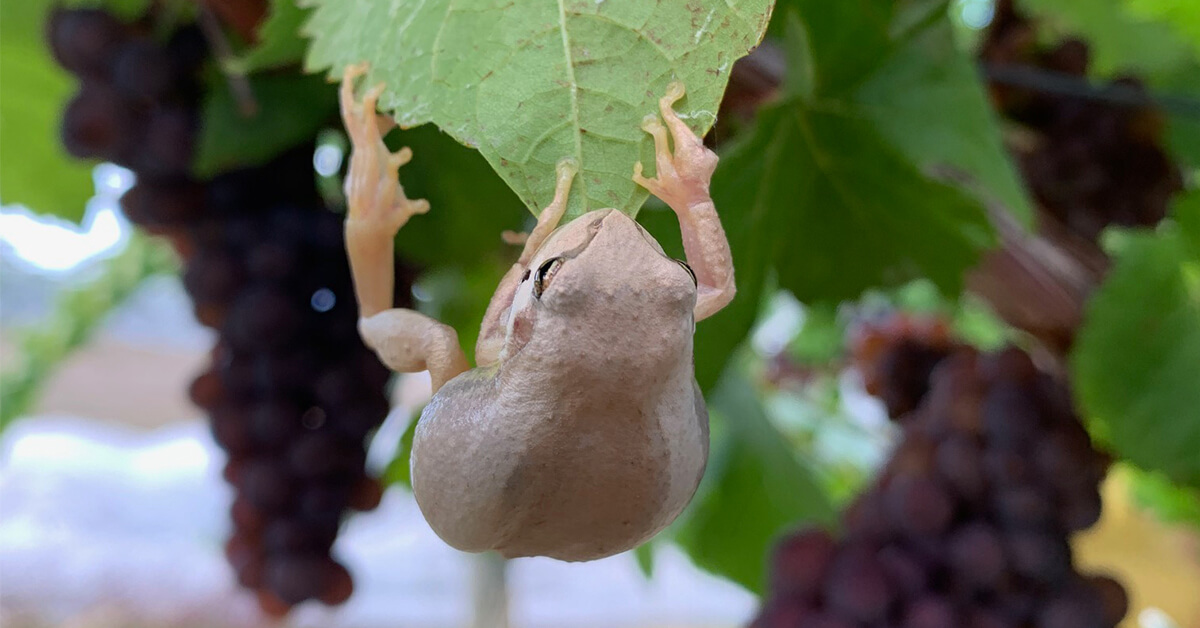
Good wine starts in the vineyard, which is why it is especially important to adopt environmentally friendly practices in the vineyard to produce world-class wines. In Tasmania our climate means that it’s often difficult to become fully organic, but as a business we continue to adopt elements from both organic and biodynamic farming and do all that we can in the winery to leave a sustainable footprint.
Sustainability has always been a high priority for Holm Oak, right from the outset. Our vision has always been to produce world-class wines so when planting our vineyard, we chose clones that were best suited to our climate and soil. Despite the fact that agriculture always has nuances between regions, there’s also no denying that Tasmania is not an easy place to grow grapes. So in setting out to cultivate our vineyards, we thought very carefully about choosing the right varieties to plant to avoid having to use harsh chemicals in our viticultural practices.
Tasmania is revered for its pristine environment – crystal-clear water, pure air and ancient forests. At Holm Oak we do everything we can to maintain our little island’s reputation as being one of the most unpolluted places in Australia, if not the world. It’s part of the reason that Tasmanian wines are gaining fast recognition for their quality on the global stage.
As vintage 2019 commences we thought we’d shed some light on some of the sustainable practices that we’ve adopted in our business, so you know just what goes into the wines that you’re regularly enjoying.
Organic Farming
“We use a lot of organic products in our vineyard,” explains our winemaker Bec Duffy.
“It would be almost impossible to be certified organic given the nature of the climate in the Tamar Valley and would potentially cause catastrophic losses due to the high pressure of fungal diseases. To become fully organic is not something that we believe is achievable in our situation, but we’ll continue to strive to be as minimal intervention as possible.”
Any pesticides that we use on the vineyards are organic. We also minimise our use of herbicides, which we only administer on a ‘as needed‘ basis. We don’t have a scheduled spraying regime as such.
Copper and sulphur are the two chemicals that are allowed to be to be used in organic farming. They are used to kill mildew on grape vine leaves, which is of great concern in Tasmania given our climate and how prone the vines are to disease.
Sulphur controls powdery mildew, specifically, the most widespread grape vine fungal disease in the world. It is a white-ish grey powdery growth that forms on the grape leaves and left untreated it can cause serious crop losses and lead to poor wine quality. Sulphur is effective, but it can cause irritation to the skin and eyes. Given we do a lot of manual canopy management in the vineyard, that is we physically touch the vines, we minimise the use of sulphur when we know we will have workers in the vineyard. Instead we use a synthetic chemical – sparingly – to control powdery mildew and avoid any nasty side effects for our team working in our vineyard.
Biodynamic Practices
Most people have a handle on organics, but biodynamics is a bit more of a mystery. The easiest way to explain it is: biodynamics views the entire vineyard as a living organism – the vines, the soil, the other plants that grow there, the insects and other animals that live in the vineyard.
All these ‘parts’ must exist in harmony to produce a healthy environment. Biodynamics uses organic farming methods as well as topical applications of ‘soil supplements’. One such application is called preparation 500, which is made by filling a cow’s horn with cow manure and burying it in the ground in autumn. In the spring it is dug up and used a fertiliser.
We believe biodynamics is a more of a belief system, after all it was devised by an Austrian philosopher Rudolf Steiner. The producers that do biodynamics well appear to encompass to the full philosophy and take it on as a whole lifestyle approach, not just something applied in the vineyard in an attempt to strengthen environmental credentials.
Our vineyard team, led by Tim Duffy, continue to research best practice principles and embrace those aspects that work for our vines. In our vineyard, we encourage beneficial insects, such as lace wings, which eat apple moth eggs, by ensuring we have a good biodiversity of host plants in our vineyard.
VinØ
To further reinforce our commitment to the environment we became members of VinØ (pronounced Vin–Zero) in 2017. This is an industry-wide initiative of Wine Tasmania, keeping track of what happens in vineyards across the island.
VinØ’s aim is help Tasmania’s grape growers produce top-quality fruit without having an adverse impact on the environment and local community. They focus on the health of the soil, controlling pests and diseases responsibly, encouraging biodiversity, minimising water usage, managing waste and recycling, as well as looking after vineyard personnel. The VinØ program provides a framework on the world’s best possible practices across each of these areas.
Every year we receive a detailed benchmarking report from VinØ, which identifies areas where we are performing strongly and areas we could improve upon. And as information and technology evolve and we learn more, it seems there is always something to improve upon. We are constantly striving to implement new ways to help protect the environment and grow healthier, stronger, disease-resistant vines.
Harnessing the Sun
When you think of Tasmania, you don’t often think of it as a state full of sunshine like other parts of Australia. However, in 2017 we installed 23kW of solar panels. They produce around 29,000kWhs of power each year, taking into account cloudy and rainy days. This is enough to help power the winery and cellar door. On some days we don’t draw any power from the grid, which reduces our carbon footprint substantially.
Holm Oak is currently undergoing an energy audit to see where we can best make efficiency gains. This may reveal the need for more solar panels, a battery to store our solar energy, or better tank insulation to further save power. We will keep you updated.
Producing wine goes well beyond just having a delicious product for our customers to enjoy. We’re a family-owned business and we believe we are just caretakers of our land and we want to leave it in better condition for the next generation than when we bought it. Over the years we have found that healthier soils and vines produce better quality grapes. It’s a win-win situation!
